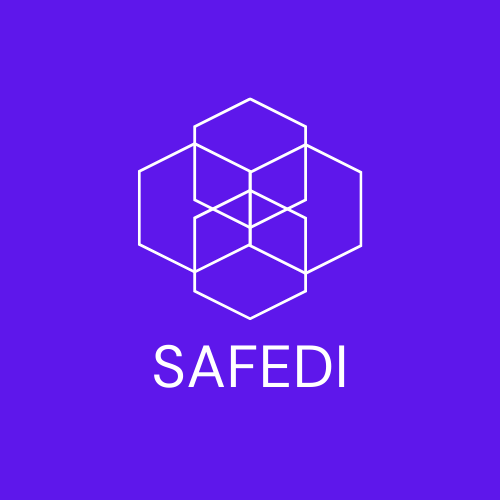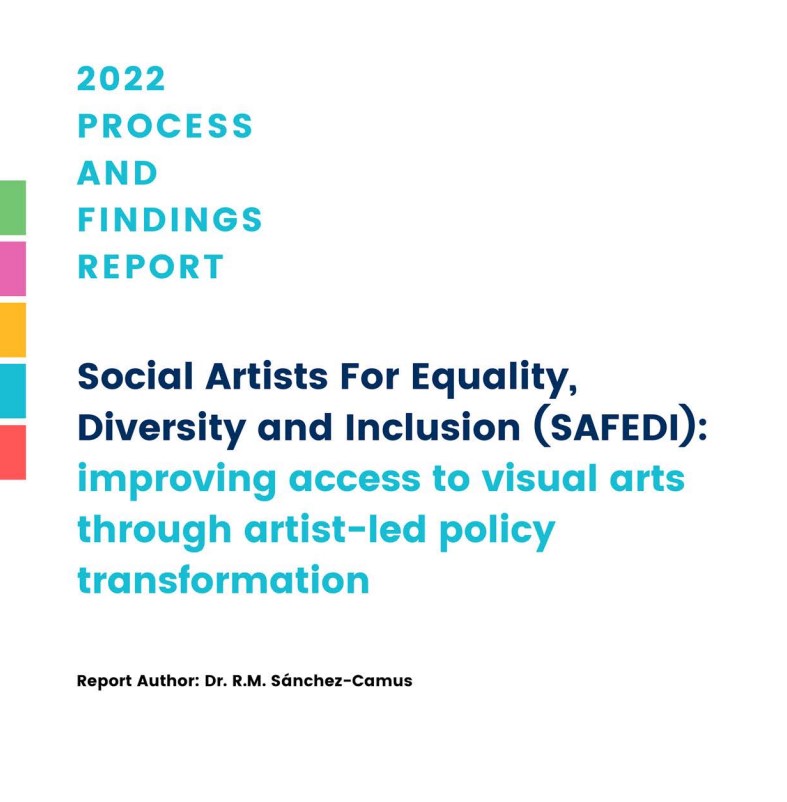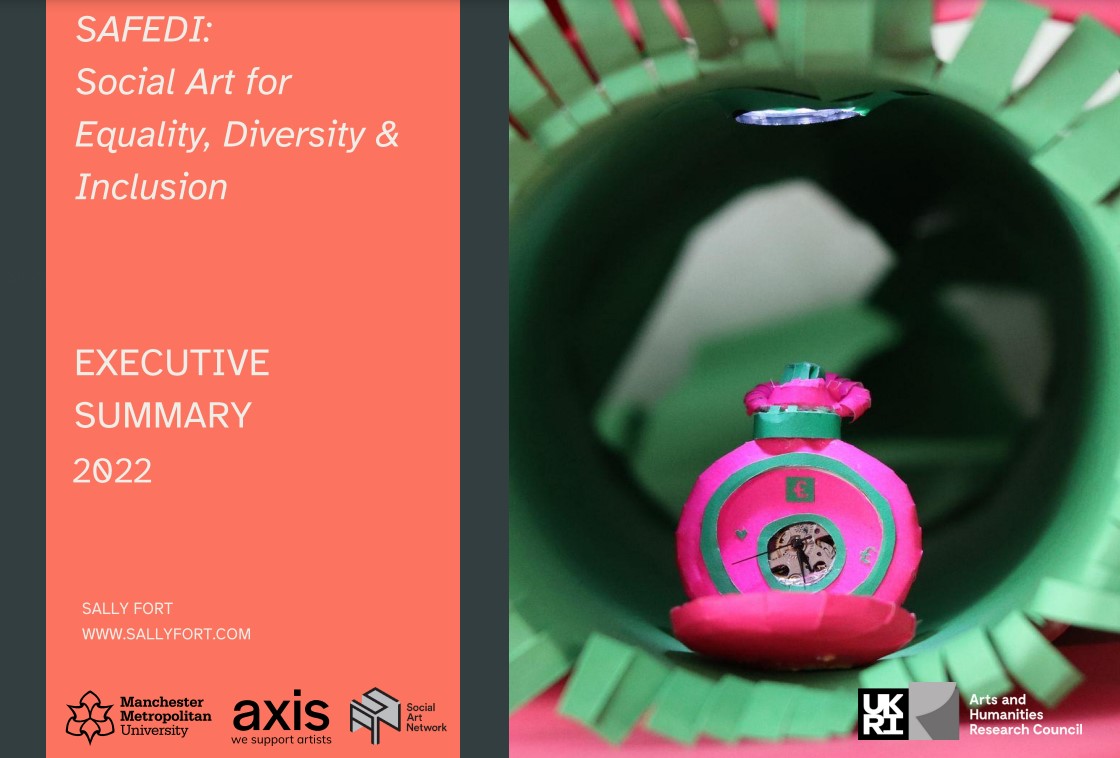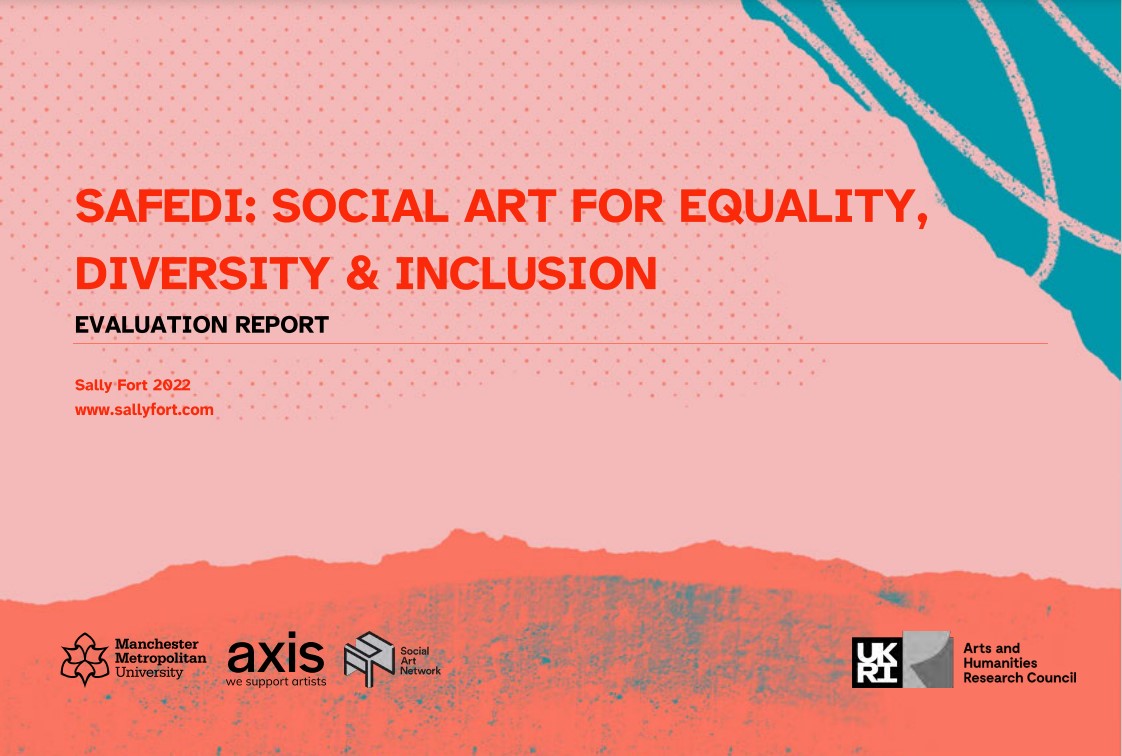
Social Artists for Equality, Diversity and Inclusion (SAFEDI) 2021-2022
A research project that brought together social artists, community participants, arts organisations and policy-makers to understand what kind of barriers underrepresented people face around access, culture and creativity.
Funded by the Arts and Humanities Research Council, as one of ten pilot Equality, Diversity and Inclusion (EDI) Engagement Fellowships, SAFEDI was initiated by Professor Amanda Ravetz of Manchester Metropolitan University and developed with R.M. Sánchez-Camus (Lead Artist), Axisweb and Social Art Network. Six social artists worked with six audience-communities affected by exclusion, approaching practice as research to include the voices of participants who are not listened to in debates about the visual arts.
The artists and projects:
An exhibition and interactive online installation that brought together communities of disabled people to investigate ways of making art centers, galleries and arts organisations more accessible.
Sarah Li (They/Them), Sofia Barton (She/Her), Dan Russell (He/Him), Lady Kitt (They/Them)
A solidarity economy that makes preserves with resources that would otherwise go to waste, bringing people together in the making and sharing of food and skills.
Carmen Wong (She/Her) , Rachel Dobbs (She/Her) , Tess Wilmot (She/Her)
Through conversation, ritual and sculpture, this project used ideas around fire building to open up honest discussions about what accessible and welcoming spaces look and feel like, culminating in a series of warmly built gallery interventions.
Lily Lavorato (She/Her)
A publication that invited a selection of QTIBPOC artists and collectives to speculate and weave fiction into their lives, creating space to dream and plan beyond the biting reality of global crises affecting our health, climate and rights to homeland.
Shama Khanna (She/They)
In response to the Black Lives Matter and Rhodes Must Fall movement, this artwork explored the symbol of the empty plinth. What do we stand for and how do we shape and represent our past and future selves?
Yuen Fong Ling (He/Him)
A performance-based exploration of gallery space from the perspective of people engaged in child growth and caring. In the form of a game, WAAS asked what institutions can do to move from ‘accommodating’ to ‘embracing, centering, honouring and celebrating’ female reproductive experience.
WAAS - Sarah Dixon (She/Her), Sharon Bennett (She/Her)
Research Outputs:
The project aimed to develop support for social artists and share learning with the cultural sector. This initiative was especially urgent given the Covid 19 pandemic and civil rights movement during lockdown, which has prompted UK cultural organisations to review their collections and policies to determine how these reflect historical issues around colonisation and racism. Art Fund’s 2020 survey revealed that the number one concern for arts institutions upon reopening was how to attract audiences again whilst Art Council’s research stated that the creative industries are ‘failing to make use of diverse talent in the UK’. In response to these issues SAFEDI encourages solutions, bridging between innovative social art practices that are currently unacknowledged, and mainstream visual art organisations requiring guidance, benefitting both while amplifying the community voice that the cultural sector is required to serve.
Reports observing the successes, challenges and benefits of the pilot have now been published.









